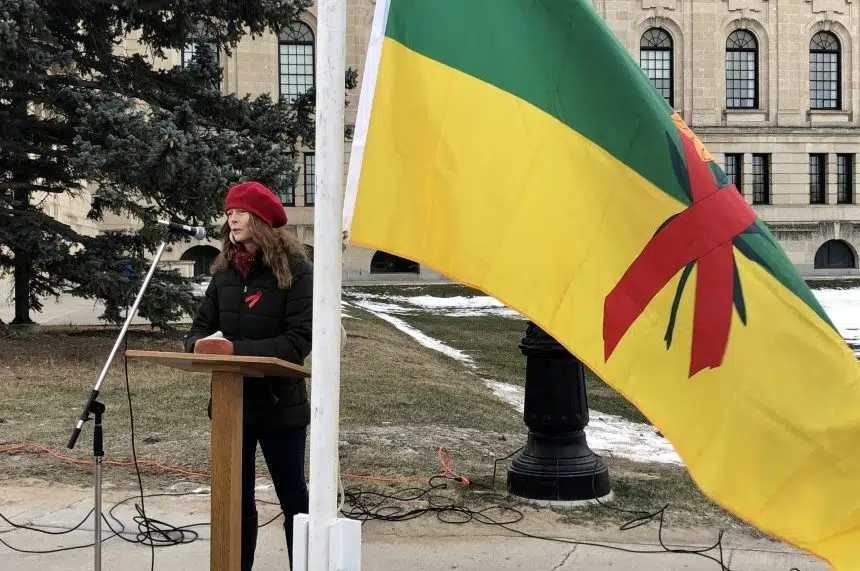Next summer will mark a decade since Saskatoon’s Kristin Dunn was first diagnosed with HIV.
Despite being vocal about it now, she said for over half that time she kept it a secret, due to the stigma around the virus.
“I didn’t want anyone in my family to treat me differently because I had it under wraps — I was perfectly healthy. I didn’t want to have to answer assumptions,” she explained.
Now working as a peer support worker with AIDS Saskatoon, Dunn said she often sees first-hand how deep the stigma around HIV/AIDS continues to run. She said it’s time to spark the conversation.
“Nobody turns their back on their relative who requires dialysis — you help them, you go along with them. We need to stop hiding and we need to start talking openly about it,” said Dunn.
In her eyes, the provincial government needs to do better when it comes to overall access to peer mentorship programs for those with the illness. While people are supposed to be connected to support groups when first diagnosed with HIV, Dunn said it rarely happens.
“Very few people are offered counseling — almost nobody is linked to peers unless somebody along the way recommends them to a place, like AIDS Saskatoon,” she said.
Dunn said she hopes her story will prompt others to come forward with their own to help curb the decades-old shame around HIV/AIDS.
HIV rates on First Nations ‘alarming,’ doctor says
Saskatchewan saw 170 fresh cases of HIV in 2016, which is nearly triple the national average. Seventy-nine per cent of those cases are self-identified as Indigenous, according to the province’s ministry of health.
“The rates, particularly in Saskatchewan First Nations, are pretty alarming,” said Dr. Ibrahim Khan, Health Canada’s regional medical health officer in the First Nations and Inuit health branch.
“In the southern parts of the province, we have declared an HIV outbreak.”
He said they’ve responded to the recent outbreak with 13 nursing mobile outreach teams, which are trained to help First Nation communities with HIV testing, counseling and eventually linking them to care.
In 2017, $3.2 million has been allocated for HIV programs on reserves, although providing appropriate HIV care to Indigenous peoples is a priority everywhere, said Dr. Khan.
“We want that if First Nations come to an urban clinic — or anywhere in the province — that they get that culturally-safe, stigma-free care and they don’t have to be judged.”
Members of @aidssaskatoon hoist the #WorldAIDSDay2017 flag in front of the #Sask. Legislature this morning. #yqr pic.twitter.com/Ye9AInM8iL
— Jessie Anton (@jessieanton_) December 1, 2017











